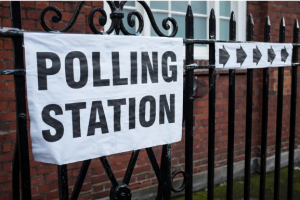
Today is the General Election, but for people with hidden disabilities like dementia, it can be tough.
Everyone in the UK with dementia has the right to vote, no matter their stage of dementia. They can vote in person and may bring a relative into the voting booth with them if they complete the necessary forms. There’s also the option of voting by mail if they can’t go to the polling station.
People with dementia might face challenges like:
– Remembering the election day and where the polling station is
– Getting to the polling station
– Understanding the voting process (they can have a close relative help them)
– Finding photo ID, which is now needed for voting
Local authorities must make polling stations as accessible as possible. If you or someone you care for has dementia, know that help is available.
Helping a Person with Dementia to Vote
If you are with someone with dementia at the polling station, ask the Clerk to speak with the Presiding Officer. Explain that you need to accompany your family member with dementia and request the necessary form. There should also be a lower booth for those in wheelchairs.
For voters who are blind or partially sighted, the Presiding Officer can read the list of candidates for them. If the Presiding Officer is busy, Clerks are trained to help.
If you’re worried about your loved one with dementia handling a busy polling station, consider going during off-peak hours, like midday when many people are at work.
If you have dementia and are voting alone, don’t hesitate to ask for help if the process is difficult. Your vote is important.
How Polling Station Staff Can Help
Polling station staff can support people with disabilities by: 
– Considering the person’s needs, not just their disability
– Clearly explaining the voting process if asked
– Letting voters know help is available
– Ensuring voters can use any provided equipment
– Informing voters, they can request a companion if needed
How to Vote by Proxy
You can also have someone vote for you, known as voting by proxy. Your proxy must follow your instructions and can’t decide who to vote for. You need to tell your proxy your voting choice, and they must stick to it.
Although you don’t need mental capacity to vote, it is sometimes said that you need mental capacity to appoint a proxy. The law on this matter is not clear.
Unlike a postal vote, you must give a reason why you can’t get to the polling station when applying for a proxy vote. This might be due to a holiday or a disability like dementia.
Find out more about voting by proxy and how to apply.
Sign up to receive our email updates
By submitting this form I agree to the ADSS privacy policy, details of which can be found here
Contact Us
Alzheimer’s and Dementia is a registered charity in England and Wales (1173379). A company limited by guarantee and registered charity in England and Wales (10690071). Registered address: Safeharbour, Coldharbour Road, Northfleet, Kent DA11 8AE